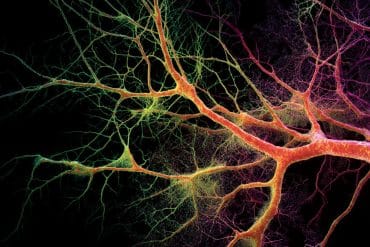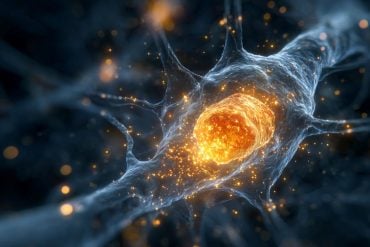Summary: While neuroticism is strongly associated with lower relationship satisfaction, the behavioral mechanisms driving this link have remained unclear. In a week-long daily diary study involving 246 participants, researchers identified specific negative and positive behaviors in romantic relationships.
They found that negative behaviors—especially conflict-driven ones like criticism or making a partner cry—mediated the link between neuroticism and dissatisfaction. Positive behaviors like giving compliments, while beneficial, did not explain the connection between personality and satisfaction.
Key Facts
- Conflict Tactics Matter Most: Specific negative behaviors—like starting fights or emotional escalation—strongly mediate the link between neuroticism and low relationship satisfaction.
- Positive Acts Not Enough: While positive behaviors were common, they did not significantly buffer against the effects of neuroticism on satisfaction.
- Therapy Target: Focusing on reducing conflict behaviors may be more effective than promoting positivity in couples where neuroticism is high.
Source: Neuroscience News
Neuroticism, a personality trait linked to emotional instability, worry, and mood swings, has long been associated with lower relationship satisfaction. However, while the connection is clear, the impact of neuroticism on romantic bonds on a day-to-day level has remained murky.
Now, a new study brings fresh clarity by identifying the everyday behaviors that may explain why people high in neuroticism often feel less satisfied in their relationships—and what therapists can do about it.

Researchers tracked 246 individuals over the course of a week, asking them to report daily on their relationship behaviors and experiences.
By using daily diary methods and statistical modeling, the team uncovered patterns in both positive and negative behaviors, ranging from small gestures like compliments to more damaging actions like causing a partner to cry.
These behaviors were then clustered into broader categories, and researchers examined how these patterns mediated the link between neuroticism and relationship satisfaction.
The key finding? Negative behaviors—not the absence of positive ones—were the driving force behind the dissatisfaction.
Individuals high in neuroticism were more likely to engage in conflict-driven behaviors, such as criticism, emotional withdrawal, or provoking guilt in their partner.
These “conflict tactics” formed a specific subcategory within the larger negative behavior cluster and were especially powerful in explaining the drop in relationship satisfaction.
Interestingly, positive behaviors—such as expressing affection or offering emotional support—did not mediate the relationship between neuroticism and satisfaction. This suggests that simply doing more “good” isn’t enough to counterbalance the damage done by habitual negative behaviors.
The study offers practical insights for therapists and couples alike. Rather than focusing only on increasing positive interactions, treatment plans might be more effective if they target specific conflict behaviors tied to neurotic tendencies.
For example, helping partners recognize and reduce patterns of excessive blame, defensiveness, or emotional escalation could directly improve satisfaction—even if the overall personality traits don’t change.
These findings align with broader psychological research showing that daily interpersonal habits often matter more than personality alone. While neuroticism may be a stable trait, its expression in relationships isn’t fixed.
With mindful attention and targeted intervention, couples can break cycles of negative behavior and protect the emotional health of their partnership.
In a world where so many people seek deeper connection but struggle with communication, this study brings hopeful news: even difficult traits like neuroticism don’t have to define a relationship—behavior does.
About this personality and relationships research news
Author: Neuroscience News Communications
Source: Neuroscience News
Contact: Neuroscience News Communications – Neuroscience News
Image: The image is credited to Neuroscience News
Original Research: Closed access.
“Neuroticism’s ties to relationship satisfaction: the role of conflict tactic behaviors” by Alexyss Lange et al. Sexual and Relationship Therapy
Abstract
Neuroticism’s ties to relationship satisfaction: the role of conflict tactic behaviors
A significant body of research has demonstrated a negative relationship between neuroticism and relationship satisfaction. Yet, the exact behaviors that link neuroticism to lower relationship satisfaction are not well established.
This seven–day daily diary study (N = 246) identified specific, everyday behaviors that might explain how neuroticism and relationship satisfaction are linked.
Using exploratory factor analysis, we identified sets of positive (e.g. complimenting your partner) and negative behaviors (e.g. making your partner cry).
Then, post-hoc, we ran another exploratory factor analysis to establish a subcategory of conflict tactic behaviors within the negative behavior cluster and a subcategory of emotionally expressive behaviors within the positive behavior cluster.
We then examined which of these clusters of behaviors mediate the relationship between neuroticism and relationship satisfaction.
The broad category of negative behaviors explained the association; the broad category of positive behaviors did not.
The subcategory of conflict tactics mediated the relationship over and beyond the mediational impact of the broader negative behaviors factor.
These findings suggest couple therapists might aim to increase relationship satisfaction by working to reduce specific negative behaviors associated with neuroticism.







